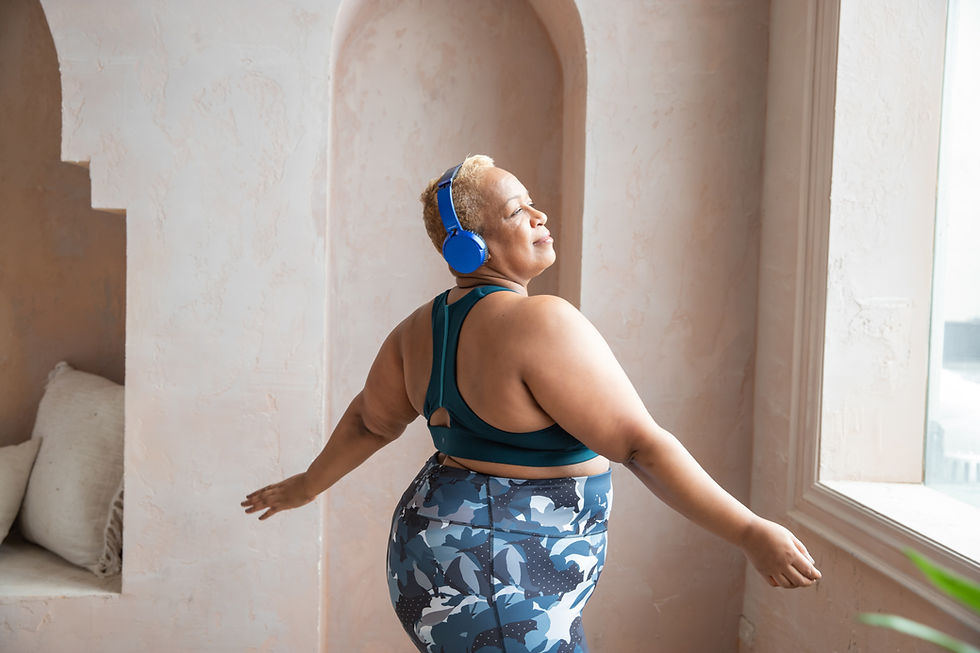Music and Eating Disorders
- Nov 30, 2022
- 3 min read
They say music is the universal language! I mean who can help but tap their foot to a good baseline or feel the urge to sing along to a great melody? Turns out, music also has surprising qualities that make it good for your mental health. 🎶

While there is little research on the relationship between music and eating disorder recovery, music has a lot of mental health benefits that can help with some of the negative effects of having an eating disorder and going through recovery.
Eating disorders impact many aspects of a person’s mental and physical well-being. Many people who struggle with eating disorders experience anxiety, depression, stress, and low self esteem from their disorder. Music has been proven to help with these conditions.
Music Therapy
Music therapy uses the power of music to improve well-being. It has been used in combination with other types of therapies - such as counseling or cognitive behavioral therapy (CBT) - that have been used in treating eating disorders. Music therapy includes listening to, singing along to, moving to, or creating music. These acts have been proven to improve confidence, boost mood, reduce anxiety, alleviate stress, release emotions, enhance human connection, and combat depression.
Music And The Brain
Music’s effect on the brain has been studied for years. Listening to music engages many areas of the brain; stimulating these areas of the brain can help boost mood, combat depression. Music may also reduce the amount of stress hormones, such as adrenaline and cortisol, that our bodies release. Reducing the release of these hormones can help with mood and anxiety.
Connection With Oneself
On top of all of these neurological effects, music is a great way to connect with not only others, but with yourself. Music offers people a way of creative expression, connection to feelings, and processing experiences. A lot of mental health struggles like eating disorders can be hard to face; music can be an outlet for those who wish to connect with themselves and reflect on their journey.
Connection With Others
Listening to music that you can relate to is also incredibly validating. Much of the music out there is created from people reflecting on their own negative experiences. Knowing that you are not alone in hard times and that someone else may have gone through a similar experience and made it to the other side is so beneficial for anyone going through a mental health struggle.
Although music is not a cure for any mental health condition, it can be a great tool for reducing the negative effects of many conditions. So next time you feel stuck, try listening to some music! 💃
Sources used:
Our app is coming!
Learn more and join our waiting list!
🧡Join our ED Recovery Discord here!
(If you don't have Discord, it's easy and free to sign up!)

Written by
Jack Manthous
Jack is an intern at Beanbag Health. He is a senior at the University of Connecticut, majoring in Management. Jack states that he has already learned so much during his time at Beanbag Health and feels excited to be a part of a company that is working towards making eating disorder recovery support more accessible. He is looking forward to a future where everyone will be able to access affordable and effective mental health care.

Clinically Reviewed By:
Iain Jordan
Iain is a consultant psychiatrist with postgraduate training in medicine, psychiatry, complexity science, and healthcare informatics. He's fascinated by the relationship between physical health and mental health and has extensive experience with eating disorder patients in inpatient settings. He's an honorary senior clinical lecturer at University of Oxford. His passion is making psychological strategies for recovery available to all.



Comments